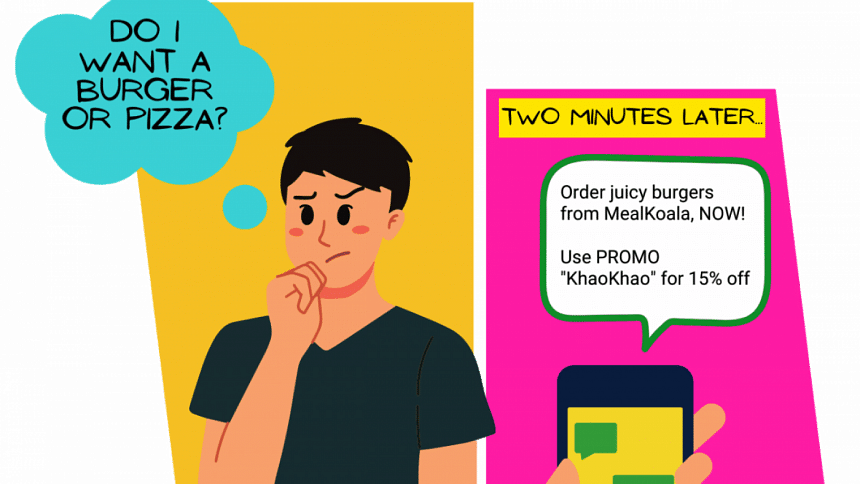You should be worried about surveillance capitalism

Earlier this week, a friend of mine was bragging about his optimised Facebook feed. He claimed he gamed the system by watching videos of burgers and fries on YouTube, which led to him getting all sorts of promotions and discounts of fast food joints on his feed.
What my friend unsuspectingly took as personal gain, is actually hard proof that he, along with billions of active social media users, are victims of surveillance capitalism.
In essence, surveillance capitalism is a process that relies on the constant gathering of online data by tech companies. The data that is generated is the byproduct of our everyday web browsing, app usage, and digital consumption — the videos we watch, the memes we react to, and the news that we consume. This allows companies to make personalised predictions about who we are, the things we want, and the things we're likely to do.
However, this isn't all, since gathering and selling information is only the tip of the iceberg. Through subliminal cues and triggers, tech companies have learnt to "modify our behaviour in the direction of their preferred commercial outcomes". This subliminal coercion and herding is why my friend sees ads for fast food joints.
So why should this be a cause of concern when the convenience this provides for us seems to outweigh the cons at an initial glance? The reasons are manifold.
Firstly, the business model of surveillance capitalism wholly undermines personal privacy. Google, Facebook, Amazon, and other tech companies claim human experience and data as raw material to feed into their systems and gain profit from.
While these companies claim to take a user's consent before collecting their data, the truth is far from it. More often than not, there isn't really much of a choice involved with giving platforms access to your personal data.
Secondly, in the process of modifying our behaviour, our free will is impeded to a large extent. The future that we project ourselves into is no longer a meaningful result of the present, but rather a programmed outcome of hindering our critical thinking and moral judgement.
It is also important to note that even though surveillance capitalists know everything about us, we know little to nothing about their incursions. The extent of knowledge they have on our behaviour and preferences extend far beyond the scope of the information we consented to give them.
However, truth be told, there isn't a single, universally applicable solution that can ensure our privacy on the internet. So, the next time you find sneakers on your feed after a trip to the sports shop, do take it with a grain of salt.
References
1. The Guardian (October 04, 2019). Shoshana Zuboff: 'Surveillance capitalism is an assault on human autonomy'
2. The Daily Star (September 09, 2019). Surveillance capitalism and the right to privacy
3. The Harvard Gazette (March 04, 2019). High tech is watching you
4. Rappler (August 31, 2030). What you need to know about surveillance capitalism
Remind Ayaan that he should be studying for his SSC examination at [email protected]

 For all latest news, follow The Daily Star's Google News channel.
For all latest news, follow The Daily Star's Google News channel. 








Comments